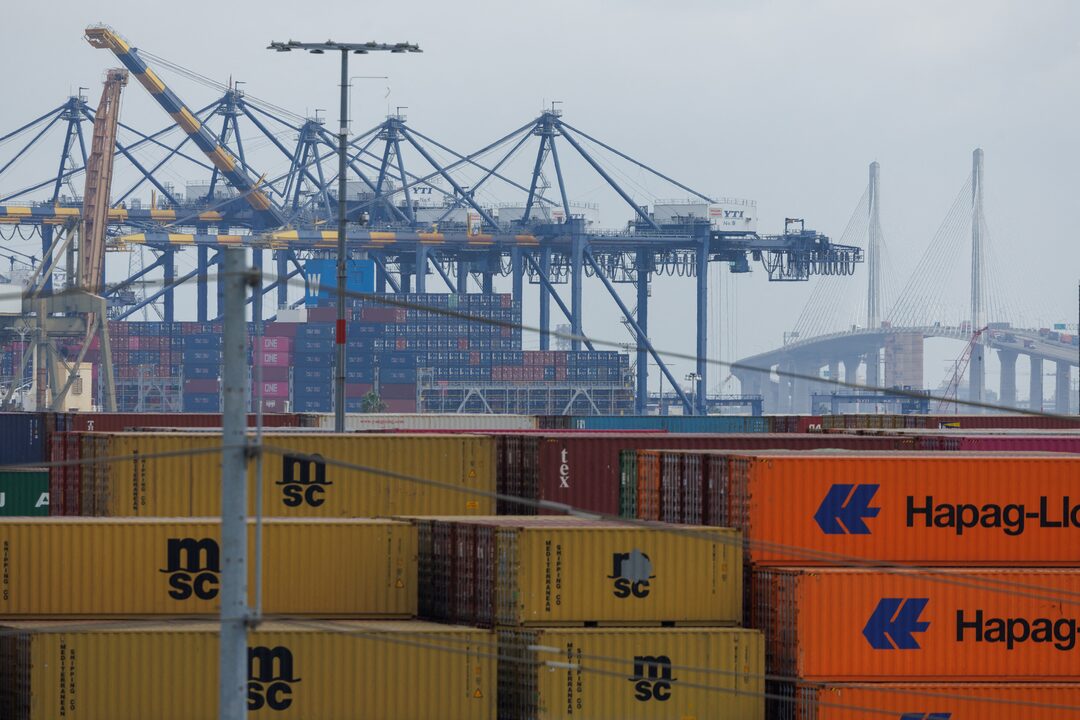EU Tariffs Postponed: Trump Announces July 9th Deadline

Table of Contents
The Tariff Postponement: What it Means for Businesses
The temporary reprieve offered by the postponement of EU tariffs provides some breathing room for businesses impacted by the potential tariff increases. However, uncertainty remains a significant challenge, impacting investment decisions and long-term planning. Many businesses had already begun contingency planning, potentially altering supply chains and sourcing decisions to mitigate the expected impact of increased import costs. This uncertainty directly affects the business climate and investor confidence.
- Temporary reprieve: The postponement offers a short-term window to adapt to potential future changes. Businesses can use this time to reassess strategies and explore mitigation options.
- Continued uncertainty: The looming July 9th deadline maintains a climate of uncertainty, making long-term investment decisions difficult. Businesses are hesitant to commit to large-scale projects without clarity on future tariff policies.
- Vulnerable sectors: Sectors like automobiles and aircraft manufacturing are particularly vulnerable to these proposed tariffs. The potential for increased import costs could significantly impact their competitiveness.
- Mitigation strategies: Businesses are actively exploring various strategies, including diversifying sourcing, negotiating with suppliers, and seeking government support.
- Supply chain disruption: The threat of tariffs has already caused disruptions in supply chains, forcing companies to re-evaluate their sourcing and logistics strategies. Both EU and US companies are impacted by this ongoing uncertainty relating to EU tariffs.
The July 9th Deadline: A Sword of Damocles Hanging Over Trade
The July 9th deadline acts as a significant pressure point in the ongoing trade negotiations between the US and the EU. Several factors could lead to the imposition of tariffs after this date, including a failure to reach a mutually agreeable trade agreement, escalating political tensions, or a shift in the negotiating positions of either side. Understanding the political motivations behind this deadline is crucial to interpreting the situation.
- Factors leading to tariffs: Failure to resolve key issues in the trade negotiations, such as intellectual property rights or agricultural subsidies, could trigger the imposition of tariffs.
- Political motivations: The deadline could be a strategic move to exert political pressure on the EU to concede on certain issues. The Trump administration might use this deadline to gain leverage in negotiations.
- Trade negotiations: The ongoing negotiations are focused on addressing various trade imbalances and concerns between the US and the EU. A successful outcome would avert further tariffs.
- Leverage in negotiations: Both sides possess significant leverage. The EU's large market size and economic strength provide considerable influence, while the US holds considerable power as a major trading partner.
Global Market Reactions to the Tariff Delay
The announcement of the tariff postponement initially triggered a positive reaction in global markets. However, the underlying uncertainty persists. Stock markets experienced a temporary rally, but the impact on currency exchange rates and investor sentiment remains complex and dependent on future developments.
- Stock market impact: A temporary increase in stock market indices was observed following the announcement. However, sustained growth depends on the outcome of the July 9th deadline.
- Currency fluctuations: The Euro and the US dollar experienced some fluctuations in response to the announcement, although the impact was not as pronounced as initially predicted.
- Investor sentiment: Investor sentiment remains cautious, reflecting the uncertainty surrounding future trade relations between the US and the EU. The overall global economic climate is also a factor.
- Comparison to previous disputes: The market reaction is similar to previous trade disputes involving the US, with initial relief followed by sustained caution until greater clarity emerges.
The Impact on Consumers
The potential imposition of EU tariffs would likely lead to increased prices for various consumer goods. This could lead to higher inflation and reduced purchasing power for consumers on both sides of the Atlantic. The impact will vary depending on the specific goods affected by any future tariffs.
- Consumer prices: Increased import costs due to tariffs will likely translate into higher prices for imported goods, impacting consumer budgets.
- Inflation: The widespread imposition of tariffs has the potential to contribute to inflationary pressures in both the US and the EU.
- Purchasing power: Higher prices for goods and services reduce consumer purchasing power, impacting consumer spending and overall economic activity.
Conclusion
The postponement of EU tariffs until July 9th offers a temporary respite from escalating trade tensions between the US and the EU. However, the July 9th deadline remains a significant point of uncertainty. Businesses must carefully monitor developments and prepare for various outcomes, while consumers should anticipate potential price increases depending on the future course of trade negotiations. The impact of these potential EU tariffs will be significant, impacting various aspects of the global economy.
Call to Action: Stay informed about the ongoing developments surrounding EU tariffs and the July 9th deadline. Regularly check reputable news sources for updates on the US-EU trade negotiations to make informed business and personal decisions. Understanding the implications of EU tariffs is crucial for navigating the complexities of this evolving trade situation.

Featured Posts
-
 Pencarian Balita Tenggelam Di Batu Ampar Balikpapan Terbawa Arus Ke Waduk Wonorejo
May 28, 2025
Pencarian Balita Tenggelam Di Batu Ampar Balikpapan Terbawa Arus Ke Waduk Wonorejo
May 28, 2025 -
 Offre Speciale Samsung Galaxy S25 256 Go A 775 E
May 28, 2025
Offre Speciale Samsung Galaxy S25 256 Go A 775 E
May 28, 2025 -
 Understanding The Padres Cubs Series Performance And Strategy
May 28, 2025
Understanding The Padres Cubs Series Performance And Strategy
May 28, 2025 -
 Trump Extends Eu Tariff Deadline To July 9th
May 28, 2025
Trump Extends Eu Tariff Deadline To July 9th
May 28, 2025 -
 Understanding Bali Belly Causes Prevention And Treatment Options
May 28, 2025
Understanding Bali Belly Causes Prevention And Treatment Options
May 28, 2025
Latest Posts
-
 Tim Meyer Steps Down Meyer Turku Announces New Ceo From Cargotec
May 29, 2025
Tim Meyer Steps Down Meyer Turku Announces New Ceo From Cargotec
May 29, 2025 -
 Meyer Turkus New Ceo A Cargotec Executive Steps In
May 29, 2025
Meyer Turkus New Ceo A Cargotec Executive Steps In
May 29, 2025 -
 Leadership Change At Meyer Turku Tim Meyer Succeeded By Cargotecs New Ceos Name
May 29, 2025
Leadership Change At Meyer Turku Tim Meyer Succeeded By Cargotecs New Ceos Name
May 29, 2025 -
 Meyer Turku Appoints New Ceo Cargotec Veteran Takes The Helm
May 29, 2025
Meyer Turku Appoints New Ceo Cargotec Veteran Takes The Helm
May 29, 2025 -
 Cargotec Executive Appointed New Ceo Of Meyer Turku Replacing Tim Meyer
May 29, 2025
Cargotec Executive Appointed New Ceo Of Meyer Turku Replacing Tim Meyer
May 29, 2025
